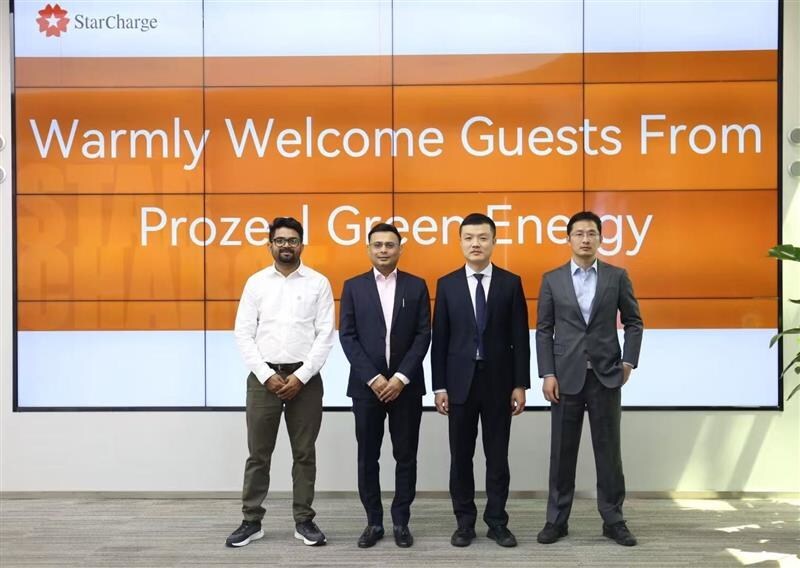
Source: cision | Published on: Wednesday, 08 November 2023
BENGALURU, India, Nov. 8, 2023 -- The Federation of Indian Chambers of Commerce and Industry (FICCI), jointly with Hero Futures Energies organized a Closed-Door Interaction on Renewable Energy Adoption by Industrial Consumers in Bengaluru last week. The key objective of the interaction was to showcase renewable energy solutions and technologies available for Indian industrial consumers, supporting their transition towards decarbonization and the net-zero journey.
Addressing the participants, Ms. Aparna Pavate, Additional Secretary, Energy Department, Government of Karnataka stated, "Karnataka is taking pioneering steps to revolutionize the energy landscape. Karnataka Renewable Energy Policy 2022-2027 stands as a beacon of the state's commitment to a greener future targeting to strengthen power sub-stations for evacuation, develop RE ecosystem and augment distribution networks." She also highlighted on the state initiative of developing hybrid parks which will produce a total of 5,000 MW of green energy. She further mentioned that India has made commendable progress in renewable energy landscape, with more than 42% current capacity built from of non-fossil energy sources.
Mr. Amarnath N, Chief Executive Officer, Karnataka Solar Power Development Corporation Ltd, Government of Karnataka mentioned that Karnataka is the pioneering state in development of renewable energy with the policy initiative starting way back in 2009. He highlighted on the key initiatives taken in State RE Policies of 2009-14, 2014-21 and 2022-27 and stated that ."Appx 62% of the current power consumption in the state is from renewable sources." He further invited industry to be a part of a proposed 5GW hybrid park, comprising of wind and solar resources.
Representing the industry, Mr. Harmit Singh Sethi, Co-Chair, FICCI Cement Committee and Executive Director & Group Head, Corporate Affairs & Incubation, Dalmia Bharat Group highlighted that while cement (and sectors like steel) are hard-to-abate sectors, but these are the key industrial sectors to drive the renewable energy adoption in the nation. He further mentioned that. "With Government's increased focus on infrastructure development and urbanization to increase from 33% to 40% by 2030, there is going to be increased demand for cement and hence an increased chance of GHG emissions. Therefore, transition towards renewables is of critical importance moving forward in the midst of net zero targets."
Presenting the Renewable Energy Solutions for Industrial Consumers, Mr. Animesh Sharma, Head of Business Development – India C&I, Hero Future Energies highlighted on the huge potential for Renewable Energy in the Karnataka State, focussing on solar and wind sources, robust grid mechanism and conducive policy framework. He further mentioned on the encouraging policies of Karnataka in terms of single window clearance, 60-days approval timeline, adoption of open access rules, among others.
Mr. Chandan Dixit, Associate Director, Deloitte India presented on the renewable energy adoption trends and developments by industrial consumers. Mr. Ramesh Chandra Lahoti, President, Karnataka Chambers of Commerce & Industry added on the plans and initiatives of the state industrial sector for decarbonization and adoption of renewable energy.
The interaction highlighted that the role of renewable energy in industries is multifaceted and can have significant impacts on industry's vision for sustainability, decarbonization, cost competitiveness and environmental goals. As the industrial sector consume significant amount of electricity produced in the country, it can play an essential part in enabling the structural shift to clean energy.
The discussions acknowledged that many corporates and industries have already committed to adopt green energy and are looking for solutions best suited to their operations. Such FICCI platforms facilitate this interaction among the two sectors of renewable energy and industrial consumers.
About FICCI:
Established in 1927, FICCI is the largest and oldest apex business organisation in India. Its history is closely interwoven with India's struggle for independence, its industrialization, and its emergence as one of the most rapidly growing global economies.
A non-government, not-for-profit organisation, FICCI is India's business and industry voice. From influencing policy to encouraging debate, and engaging with policymakers and civil society, FICCI articulates the views and concerns of industry. It serves its members from the Indian private and public corporate sectors and multinational companies, drawing its strength from diverse regional chambers of commerce and industry across states, reaching out to over 2,50,000 companies.
FICCI provides a platform for networking and consensus building within and across sectors and is the first port of call for Indian industry, policymakers and the international business community
![]() View original content:https://www.prnewswire.com/in/news-releases/renewable-energy-to-drive-cost-competitiveness-for-industrial-consumers-301981183.html
View original content:https://www.prnewswire.com/in/news-releases/renewable-energy-to-drive-cost-competitiveness-for-industrial-consumers-301981183.html
